LOOKING BACK AT BURT BACHARACH
Norman Warwick
LOOKING BACK AT BURT BACHARACH.
I am seventy and so at the time of Burt Bacharach´s first UK chart hit, (Magic Moments by Perry Como or Ronnie Hilton in 1958.) I would have been only six years old, and so I am not sure I have substantive memories of it all. I´m guessing though that would have been around the time I became aware of my dad´s admiration of Ronnie Hilton, and the be doobie de do, de boobie de du, de boobie de doo do of the song´s bridge that would never leave me alone for the rest of my life.
I could not have envisaged then that Magic Moments would be such a constant on my favourite music lists, could not have known then that Ronnie Hilton and my dad´s love of this kind of music would shape my own life as a poet/writer, and my dad couldn´t have anticipated that in his worst nightmares ! Years later Don McLean´s And I Love You So was recorded by Perry Como and strangely it was his version, rather than the one by the writer, that seemed to rest easiest among my extensive range of Americana classics.
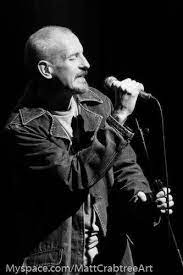
Poet Gerry Potter (left) wrote on facebook following the announcement of the death of one of the world´s great song-´writers.
´I do wonder if you can be my age and not know Burt Bacharach.
In the sixties/seventies he was a corner stool monochromatic and, whether him or people singing/playing him, a ubiquitous televisual constant.
My guess is I know him first from Cilla Black, they seemed to always be on TV. I remember, even as a young kid, thinking he was incredibly handsome and (wondering) why wasn’t he the lead singer. Usually Burt wasat the piano, before a full orchestra, accompanying fabulously dressed songstress and brilliantly sung song.

So it seems Gerry Potter shared a similar childhood reaction to the emergence of Bacharach and his music. I would agree with his opening comments, but as I grew up to be eight or nine years of maturity I was heavily into the world of the rock n roll of The Beatles, the blues of The Stones, the harmonies of The Hollies and of the fun of Freddie And The Dreamers (right) before I became a teen terror with The Monkees and (nearly all my music became Americana). I think that even before I realised Bacharach was American his music had become a guilty secret (a little bit too square to be allowed to speak or to be filed alongside my poster-on-the-wall heroes. So the following closure of Mr. Potter´s message really made me re-appraise Burt Bacharach´s brilliance
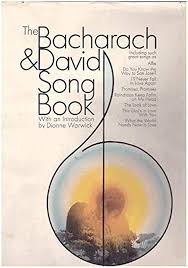
I know he was glitz, glamour and all easy listening on himself but even way back I thought there was an edge. I instinctively knew his songs weren’t just pop music, there was something a bit more secretively lush to them, an unspoken adult knowledge. As I grew older all that became much clearer.
Easy Listening at its best is slightly edgy, hinting at the invisible hedonisms of other lives and hidden loves. Not necessarily lyrically but within sensual orchestration and of course, presentation. On just left jet planes or up up and away in beautiful balloons, in resorts made from celebrity sunshine and one olive’d Martinis, there was another world of easy to access, hot longing love. Everybody always is (or was), erotically tonguing in Bacharach’s music.
A fingerprint artist, unique.
That closing description is surely accurate, when I look at a list of Bacharach (and Hal David) compositions like They Long To Be Close To You (a hit for a duo squarer-than-most,), Do You Know The Way San Jose (charted by Dionne Warwick) Magic Moments, Raindrops Keep Falling On My Head, and I Say A Little Prayer For You (another recorded by Dionne Warwick) I realise that over the decades I have refined my early impressions.

The production qualities on the recordings of all of the above are absolutely top drawer. I now look at those hits written by an apparently square writer and a duo, The Carpenters (right), as steeped in musicality as the composer, but just as out of step with what I then thought of as pop music, but now sounds like classic gold whenever I hear it.
Had I ever been asked Do You Know Way to San Jose I would have told the Dionne with whom I share a surname that I had never heard of the place and would she please take that music out of our living room?
I have said already that Magic Moments have stayed with me all my life, as too did that stupid song Raindrops Keep Falling (Sacha Distel and BJ Thomas extolled the fun of such moments but it was Paul Newman´s cavorting cavorting about on a bicycle in a bowler hat that redeemed the song).
As for I Say A Little Prayer, a song that written for, and a hit for, Dionne Warwick, it became more associated with Aretha Franklin after she and producer Jerry Wexler recorded the track. In the summer of 1968, Franklin released the song as a single from her Aretha Now album. Notwithstanding my nose in the air pretensions, I could now accept the song as a credible addition to my music.
There could be no such pardon however, for What´s New Pussycat, by Tom Jones, whether or not a Bond-film theme song.
However, when another artist, Dusty Springfield, delivered a hugely powerful (and insular) rendition of I Just Don´t Know What To With Myself when I was a teenager, I loved it.

A song that demonstrated perfectly how adaptable Burt Bacharach songs could be was I´ll Never Fall In Love Again, Dionne Warwick, Tom Jones, Johnnie Ray and Deacon Blue (left) each gave the song something a little different and put their own stamp on it, and it was included in the Austin Powers Movie, The Spy Who Sh+++ed Me. Perhaps my favourite version, though, was the 1969 release by Bobbie Gentry, sung softly with a catch in her voice. The real seal of approval on the song though was later pressed by Elvis Presley and recorded in The Jungle Room,
There was a little spat around a couple of recordings of Anyone Who Had A Heart, although in fact, as recently as five years ago, a journalist called Sean Nelson conducted what he called The Anyone Who Had A Heart Olympics, in an effort to see which deserved a gold medal for being finishing ´first´in a long line-up of runners.
After writing a review of a 2018 Burt Bacharach performance at Jazz Alley, Mr. Nelson became obsessed with a Bacharach and Hall David song that had Dionne Warwick and Cilla Black (or at least ´their people) arguing about the merits of the records by each singer which, whatever the claims or counterclaims, were each good enough to earn them a massive hit.
The first recording of the two versions was made in 1963 and, Mr Nelson reminded his readers, was sung by Dionne Warwick, and it was an international hit.
He goes on to say ´(Anyone Who Had A Heart) has since been recorded innumerable times, by singers of many races, genders, and nationalities. I have a favourite version, and a second favourite, and a handful of guilty pleasures. I also feel strongly about the shoddiness of several versions, and am indifferent to even more. (After seeing a recent show by Burt Bacharach) I have found it an interesting lesson for me in considering the whole “singer not the song” question (spoiler: I think it’s actually both), and in the deathless endurance of some songs no matter how many times you listen to them on repeat while singing, crying, or even just folding your shirts.
Below the jump, I weigh in on 20 different versions of “Anyone Who Had a Heart,” some of which are well known, but many of which I imagine are obscure to even the most ardent Bacharach/David fan. As with any micro-obsession, I don’t know if “enjoy” is the right word, but here on this Throwbackiest of Thursdays, I invite you to consider one of the best songs ever:

Dusty Springfield (right), in 1964, gave what was, to my ears, the definitive reading of the song, setting a bar no one has ever cleared, though many have tried. Everything about this performance, produced by Johnny Franz as an album track for Springfield’s debut LP, A Girl Called Dusty, and never even issued as a single (presumably too close on the heels of Dionne Warwick’s and Cilla Black’s huge hit versions) is redolent not only of heartbreak, but of the depravity a broken heart is capable of inspiring. It’s full of the kind of naked vulnerability that would be embarrassing if it weren’t communicated with such mastery. Shattered and shattering. And she was just 25 years old.
The Dionne Warwick (1963 original) version was recorded during the same session that yielded “Walk on By,” no less and was a hit all over the world, and how could it not have been? Still, Warwick’s voice is almost too lovely, too fresh, too unseasoned by sorrow to carry the weight of the composition. Though the production (on this recording) is unrivalled, she would sound more authoritative delivering the song in later years
Mr. Nelson also recalls a Dionne Warwick & Burt Bacharach, live performance of the song in 1996, saying Twenty-three years later, everything about Warwick’s singing, from dynamic range to physical texture, has matured, and her performance of the masterpiece resounds with a depth of sadness that her original (and still classic) rendition couldn’t touch´.
The perceptive journalist also remembered a Dionne Warwick solo gig in 2002 which left him with same impression and high regard.

Cilla Black´s (1964). version (produced by George Martin, who was about to get very busy) ran neck and neck with Warwick’s original, edging it out for prominence in England, possibly because Cilla was mobbed up with the Beatles. But despite her belting-to-the-rafters verve, Black at 20 years of age wasn’t yet up to the deep sad science of this song. She may not ever have been.
Hmmm, I will certainly bow to Mr. Nelson´s wider awareness and greater commitment to the cause but, I´m not actually sure I would agree with his reading above. Watching a very lengthy, but deservingly so, on tv a few might´s after Bacharach´s sad passing I was struck again by a half forgotten anger and defiance in her rendition that was strong enough to ensure that whenever I first heard her sing any song throughout the rest of her career she would always have brownie points in the bag for honest and sincerity of performance.

A friend of mine in the UK, knowing my love of American singer-song-writers, convinced me over the course of several heated debates spread out over several writing group sessions that there were some pretty good British singer-writers who should not be overlooked. His prime example of such an artist for my pal Andrew Moorhouse was was Elvis Costello, so no doubt he would have been aware of a recording a live gigs by Elvis Costello with Burt Bacharach.
So, too, was Sean Nelson, who continued in his article by discussing Elvis Costello & Burt Bacharach, live in London (1998), telling us that On the heels of their album, Painted From Memory, Costello and Bacharach did a series of concerts that featured their collaborations and a handful of old favoúrites, including “Anyone Who Had a Heart.” Singing for Bacharach pushed Costello’s vocal capacity to a new plane, enabling him to utterly shred this song, which he considers one of the greatest ever written.
Of the 1986 recording of Anyone Who Had A heart by Luther Vandross, the journalist wrote in The Stranger ´You won’t catch me disrespecting Vandross’s vocal prowess. He sings the hell out of this song, a highlight of his commercial breakthrough album, Give Me the Reason. Still, I can’t get around Marcus Miller’s production, or the ’80s-ified arrangement; it feels a little like the 1983 remake of Breathless, which is not to say “how could you?” but “why would you ?´

Petula Clark (left) recorded the song as”Ceux Qui Ont Un Coeur” and “Quelli che hanno un cuore”: In his piece in The Stranger Nelson explained that Pet, (as my parents always referred to her, remembering her child-star years) ´was Dionne Warwick’s labelmate, and hence got the opportunity to record these quickie translation versions for France and Italy (there’s also a Spanish version, “Tú no tienes corazón,” but it appears to have escaped YouTube’s dragnet, which is worthy of respect) using the existing backing tracks while Warwick, Bacharach, and David were busy soaring up the English-speaking charts´,
In 2008 Shelby Lynne recorded ´A thoroughly respectable minimalist approach that regrettably strips away a lot of Lynne’s organic country soul and robs the song of the melodrama that is its birth-right.
Josie Jones, ´a woman whose career as a backing vocalist includes performances on both Stevie Wonder’s Songs in the Key of Life AND Make It Big by Wham later covered Anyone Who Had A Heart, ´slowly pouring out the melanholy pouring out with almost agonizing deliberation.´
To call Anyone Who Had A Heart, as recorded in 1965 by Frankie Vali and The Four Seasons as better than you might expect is not necessarily a massive compliment. What damage is left undone by the lead vocal is more than made up for by the backing vocals. But then the mawkish instrumental bit comes in and suddenly it’s clear that no song is performer-proof.
Sean Nelson adds more fuel to the fire around Anyone Who Had A Heart by slightly damning with faint praise Shirley Bassey and her version of the song on the fringe of the Warwick – Black debate.
´In 1978 Shirley Bassey, who you’d think would slay this song, turned in a somewhat lackluster rendition of it. Part of the blame belongs to the Valium-esque production, but it’s also possible that Bassey’s diction is too good, her whole manner too arch and confident to communicate the song’s deep sorrow and prostration. George Martin had originally found the song for Bassey in 1964 before ceding it to Cilla Black. Maybe he was right after all.

As I read this article I was struck by Nelson´s breadth of knowledge, forthright opinions and his wonderful way with words. I couldn´t agree more with how he voiced his opinions of the Linda Ronstadt (left) 1993 cover of the song,
´It’s a little baffling that someone with as many massive hits as Ronstadt could still be considered underrated, but there it is. Her rendition of this song is like the world’s saddest bell ringing with perfect clarity through the world’s coldest night´.
He is, however, slightly less complimentary to the Björk & The Brodsky Quartet, Live at Union Chapel, London (1999) saying ´Since I’m apparently the only person left in the world who doesn’t revere this particular singer, I feel no compunction about saying she really nails the tell-tale “so”s in a way that nearly makes up for her revisions to the best part of the song´.
That Sean´s memory is bordering on the slightly sinister is redeemed by how that memory allows him to make so many compare and contrast observations such as ´Alison Moyet, live on TV (2013), apparently serenading Ms. Cilla Black herself, Moyet brings a dimension that her host couldn’t quite manage.´
The writer can, in fact, be instantly dismissive: ´Ronald Isley & Burt Bacharach, live on PBS Soundstage (2004). A case study in how even a gifted singer can get in the way of a great song´.
or, looked at from another perspective, ´Olivia Newton-John, live on British TV (2004), offering a case study in how even a gifted singer can add almost nothing to a great song such as Anyone Who Had A Heart.

Just occasionally, though, even Sean Nelson has to grapple with his own findings, as with a 2008 single of Anyone Who Had A Heart by Atomic Kitten (left) when he can only conclude that ´The otherwise objectionable pop music production vogue of the mid-late oughties not only doesn’t harm this song, it weirdly serves it. It probably has to more to do with the intrinsic melodrama factor mentioned above than with the specific character of the softcore trio doing the singing (though, in all fairness, there’s nothing wrong with them either). Bizarre´.
There are, of course scores of other Bacharach compositions besides Anyone Who Had A Heart, and some of thev have remained constants on my ever-being revised playlists for whatever product has carried them at the time.
It is some of the songs that don´t instantly sound to me as a Burt Bacharach song that intrigue me most, somehow, In These I include Make it Easy On Yourself, Alfie and This Guy´s In Love With You recorded by Herb Alpert, later record executive at A & M records.

The wealth of newspaper retrospectives and hastily pulled off the shelves tv archives of Burt Bacharach all spoke eloquently of his genius, and his music spoke both for itself and its writer. One of the most intriguing was an audience with / chat show kind of programme with tv controller Michael Grade (right) in the interviewer´s chair, obviously a huge fan of Bacharach and someone we might have expected to have associated with a much better produced programme.
The format was flawed, anyway, in that nobody seemed to have decided whether this was a chat show with the writer of songs which a few guest artists might interpret, or whether it is a gala performance of loads of excellent singers, with occasional questions, in search of sound-bites, being asked by Grade.
It was easy to see why the programme-makers´ indecision was final. Bacharach was perhaps far more prepared to be expansive in conversation than they might have expected, but almost every time he was building to some moot point, Lord Grade pointed us back to the stage where another (admittedly superb) artist was standing behind a microphone and in front of an orchestra. Bacharach´s facial expression strayed from a slight annoyance at being interrupted to also a keen interest in the artist about to interpret one of his sons.

If I had ever known it, (and I must have, surely, once upon a time?) the ´surprise´ fact to emerge from this eulogy to Burt Bacharach is that he wrote one of the seminal songs of my life. I realise now, as I look back from fifty odd years away, that Gene Pitney (left) might have been the artist who lured me away to a love of Americana music.
I was never any good at either primary or secondary school in subjects like geography or arithmetic, and although I never learned from a teacher I learned instead from people like Gene Pitney, and The Monkees, that I was only ever Twenty Four Hours From Tulsa and that, anyway, I could always take The Last Train To Clarkesville.
Over the years I have also come to learn how great songs will always find their way around, too. Music can also follow sidetracks and detours and can integrate communities in any part of town: in the concert halls, the folk clubs, the country side, along the blues alleyways. Burt Bacharach songs can be heard in all of them, and many of them have enjoyed interpretations by musicians playing in the jazz joints of the UK.
Our friends at Jazz In Reading tell us of a Mother´s day jazz gig coming up next month.
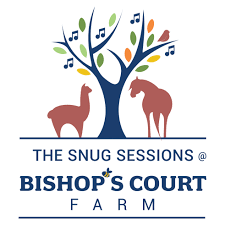
Hampstead Jazz Club All Stars
A Jazzy Mother’s Day Celebration
featuring vocalists
Jo Harrop and Freddie Benedict
Bishop’s Court Farm
Dorchester on Thames OX10 7HP
Sunday 19 March
Doors 6pm | Show 7 – 9pm | £20
Hampstead Jazz Club proudly presents the hotly anticipated second season of The Snug Sessions at Bishop’s Court Farm, a series of nine very special shows featuring a line-up of some of the brightest stars in contemporary jazz and soul.
Hampstead Jazz Club All Stars – A Jazzy Mother’s Day Celebration
The first in an exciting series of contemporary jazz evenings at Bishop’s Court Farm.
‘A rare mix of delicacy and boldness. Sheer perfection.’ The Guardian
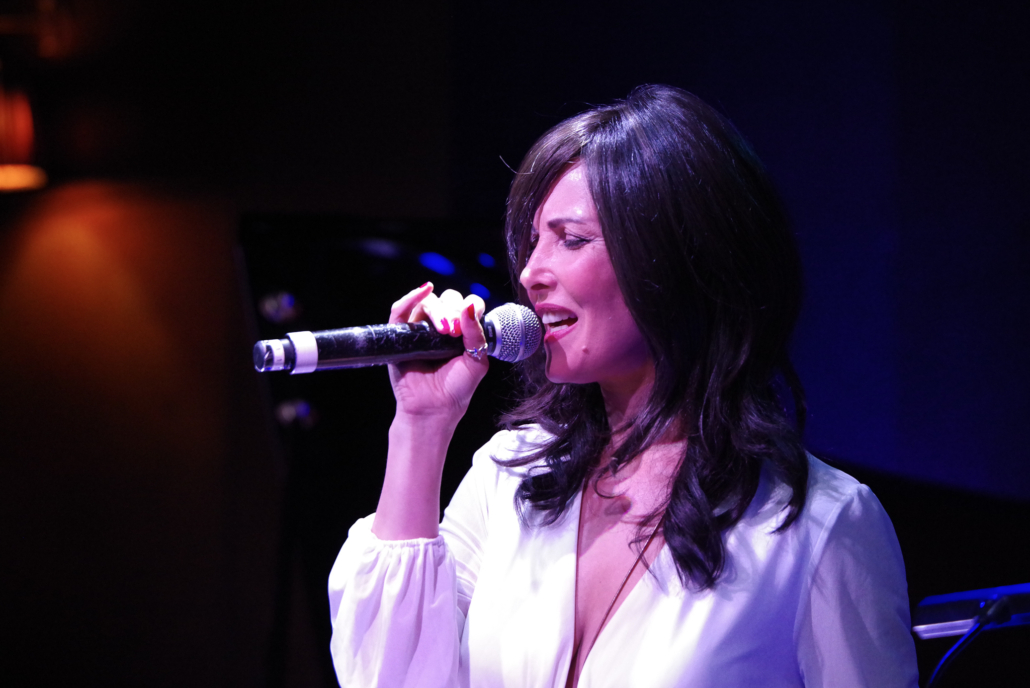
We are delighted to be launching the 2023 season of Snug Sessions shows at Bishop’s Court Farm with a special Jazzy Mother’s Day Celebration featuring the sublime voices of Jo Harrop (left) and Freddie Benedict alongside trumpet-master Andy Davies and virtuoso pianist Paul Edis.
One of the rising stars in British jazz, Benedict has a smooth, effortless style reminiscent of Chet Baker and Mel Tormé, whilst Harrop has received a raft of critical acclaim since she burst into the spotlight a few years ago.
They will be adding their own contemporary twist to a set of timeless Great American Songbook classics mixed with a selection of songs from Harrop’s recent critically acclaimed albums, The Heart Wants and When Winter Turns To Spring – an achingly beautiful jazz journey celebrating the seasons in all their glory.
Jo Harrop vocals | Freddie Benedict vocals | Paul Edis piano | Andy Davies trumpet | Adam King bass | Peter Adam Hill drums
Drinks will be available to purchase on the evening.
Doors: 6pm, show 7 – 9pm.
Bishop’s Court Farm,
91 High St, Dorchester on Thames OX10 7HP Map
Book tickets here – £20
We look forward to bringing you more comprehensive jazz listings for the month of March in one of daily not-for-profit blog posts next week.
Meanwhile we would like to offer you some Hot Biscuits.
Many reader of our Sidetracks And Detours daily blog will already be aware of the name of Steve Bewick, a presenter of a jazz mix-cloud weekly programme. He is also an occasional contributor to these pages as he and I used to co-present a weekly hour called áll across the arts´ on Crescent Radio in the UK. We have also interviewed Steve´s his wife Marlene, for this Lanzarote Information platform-

We were therefore really pleased to read a current news piece about the radio presenter in a weekly publication in all across the arts, edited by Steve Cooke (right) for The Manchester Evening News Media Group in The Rochdale Observer, one of the group´s several local papers.
Mr. Cooke wrote, ´whether you are a jazz lover or don´t actually think jazz is for you, I thoroughly recommend a listen to Hot Biscuits, with local Rochdale-based broadcaster. Steve Bewick. Whether you are in the jazz camp or the classical camp you are bound to find music to lift your spirits.
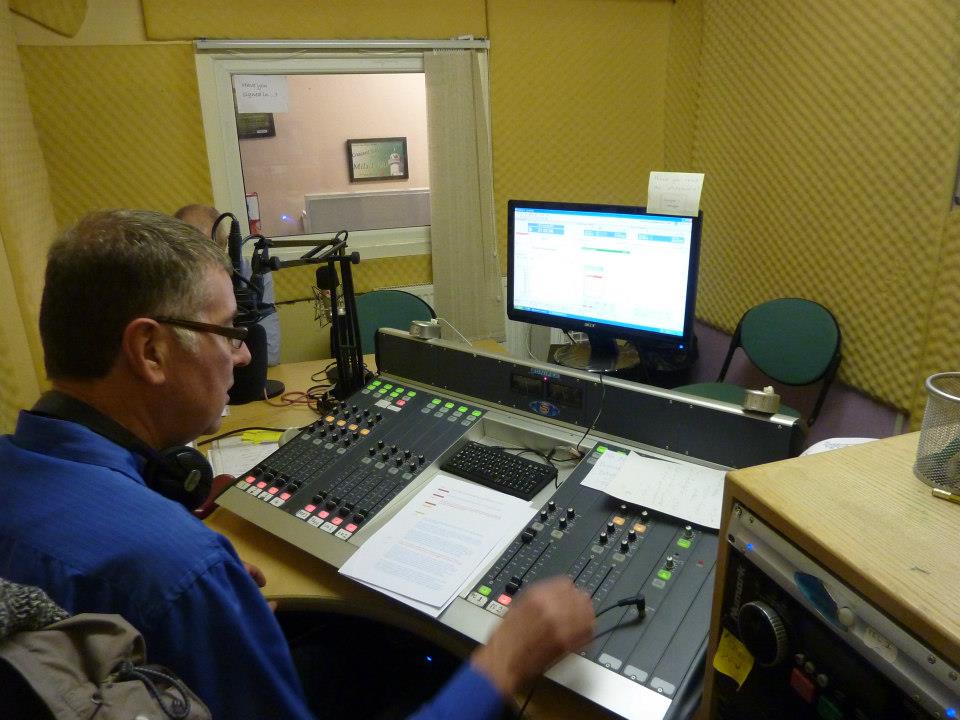
Steve Bewick (left) has a long history of broadcasting in the .local radio environment with Hospital Radio, Crescent Radio and for the last ten years or so with FC Radio. He labels his current broadcasts as ´a jazz programme spanning the latest great and famous in all things jazz´.
As this is an internet broadcast Steve´s shows go out around the world, often prompting new music to be sent from all sorts of places to his Rochdale studio-
He has, of course, also established good contacts on the Manchester jazz scene and receives recordings from local and visiting bands. This enables him to include live recordings twice a month.
Such broadcasts were spawned for the formation of non-league football club, F.C, Manchester, which emerged from protests to the take-over of Manchester United by the Glazer family, who are now seeking new investments or buyers. Fans of the new non-league team were keen on a media channel that gave radio and tv coverage of its matches.
Out of that came a series of specialist programmes, like Steve Bewick´s on jazz, by the fans for the fans.

This week´s Hot Biscuits presentation includes a live session from Phil Shotton Quartet featuring Phil’s outstanding tenor saxophone playing. Also included are tracks from Paul Booth – Summer of 44, Anita Wardell, Amy Bird Music, and closing with Arthur Lea‘s Bootleg Trio. If this looks interesting share with your friends and join Steve Bewick 24/07 at




Leave a Reply
Want to join the discussion?Feel free to contribute!